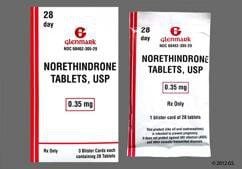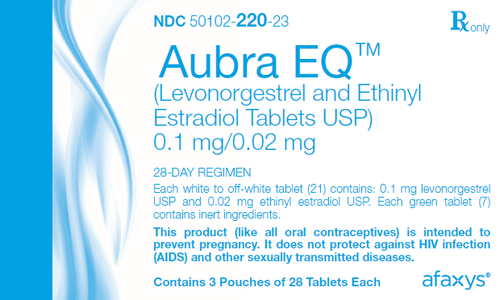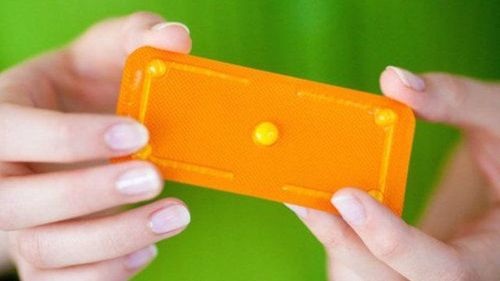This is an automatically translated article.
Pregnancy is a woman's destiny, but if you are not really ready, couples can use safe methods of birth control. The most popular and effective are non-estrogen hormonal birth control pills like Norethindrone. So what does Norethindron do?
1. What does Norethindron do?
What does Norethindron do? In fact, Norethindrone is a birth control pill that does not contain the hormone estrogen. Norethindrone is essentially a form of progestin that works to prevent conception by mechanisms such as thickening the vaginal fluid, preventing sperm from reaching an egg (fertilization) and changing the lining of the uterus to prevent an egg from being fertilized. nesting sperm. The fertilized egg is then excreted from the body.
The pill also works to prevent ovulation for about half of a woman's menstrual cycle. Therefore, Norethindrone will be less effective than combined hormonal contraceptives (including estrogen and progestin) because it does not inhibit ovulation during the menstrual cycle.
Norethindrone is often used for women who cannot take estrogen supplements. To limit the risk of unwanted pregnancy, users need to use Norethindrone birth control pills exactly as prescribed. Be aware that the use of birth control pills does not protect the user or partner from sexually transmitted diseases (such as HIV, gonorrhea, chlamydia).

Thuốc Norethindrone là một loại thuốc tránh thai
2.How to use Norethindrone
Read carefully the drug information provided by the pharmacist before the user starts using the Norethindrone product. This information is very important about when to take the medicine and what to do if you accidentally miss a dose, if you have any questions, talk to your doctor or pharmacist.
Norethindrone is taken by mouth, as directed by your doctor, usually 1 time per day. Users should choose an appropriate, easy to remember time of day to take Norethindrone and maintain that habit every day. Taking Norethindrone after dinner or at bedtime is ideal for people with stomach upset or nausea caused by the drug. However, any time of day can be an option, it is important to take Norethindrone at the same time each day, 24 hours apart.
At best, users should start taking Norethindrone on the first day of their period. If starting on any other day, use an extra non-hormonal method of contraception (such as condoms, spermicide) for the first 48 hours to increase contraceptive effectiveness. and wait for the medicine to have enough time to take effect.
Maintain the habit of taking one Norethindrone tablet per day. After taking the last pill in the pack, the user should start a new pack the next day. There's no break between packs and don't take any "reminder" pills (non-hormone pills). Menstrual periods of people taking Norethindrone may be irregular, more irregular than usual, sometimes with vaginal bleeding between periods. However, never stop taking Norethindrone if the above problems occur.
Risk of pregnancy can happen if user misses any pill. Then, quickly start a new pack of pills at a later time in the day than you normally would. If you miss a pill or take it at least 3 hours later than usual, or have diarrhea/vomiting right after taking Norethindrone, use a backup method of birth control (such as condoms, spermicide). infection) every time you have sex for the next 48 hours.
Talk to your doctor or pharmacist about switching from other forms of hormonal birth control (such as the patch, other birth control pills) to a Norethindrone product. If there is any unclear information about Norethindrone, please consult the instructions for use or consult your doctor/pharmacist.
3. Norethindrone side effects
Norethindrone can cause side effects such as nausea, vomiting, headache, bloating, breast tenderness or weight gain. Vaginal bleeding between periods or missed periods/irregular periods may also occur. If any of the side effects of Norethindrone persist or get worse, tell your doctor or pharmacist immediately. If you miss your period for 2 consecutive periods (or 1 if you have not used the pill correctly), please contact your doctor to take a pregnancy test.Any drug including Norethindrone will have side effects to varying degrees. However, the use of Norethindrone means that the benefits must outweigh the harms. Many people use Norethindrone and have no serious side effects. This non-estrogenic birth control pill can raise blood pressure in the person taking it, so check your blood pressure regularly and let your doctor know if the results are high. Some of the less common serious side effects of Norethindrone include:
A lump in the breast; Mental/mood changes (such as depression); severe stomach or abdominal pain; Vaginal bleeding that changes abnormally (such as continuous bleeding, sudden heavy bleeding, missed period); Dark urine, yellow eyes, yellow skin. Norethindrone can cause serious (sometimes fatal) blood clot-related problems (such as deep vein thrombosis, myocardial infarction, pulmonary embolism, ischemic stroke). Get medical help right away if any of the following side effects occur while taking Norethindrone:
Severe chest pain, pain radiating to the jaw, or pain radiating down the left arm; Confusion, dizziness/sudden fainting; Feeling pain, swelling, hot to the touch of the lower leg; Difficulty speaking; Shortness of breath or rapid breathing; Unusual headache (including headache with vision changes, migraine, sudden/very severe headache); Unusual sweating; Weakness on one side of the body; Vision problems/changes (such as double vision, partial/complete blindness). Very serious drug reactions due to Norethindrone are very rare, but get medical help right away if a Norethindrone user notices any symptoms of a serious allergic reaction, including: rash, swelling with itching of the face/tongue/lips/throat, dizziness or difficulty breathing. This is not a complete list of possible side effects when taking Norethindrone, if users notice other effects not listed above, contact their doctor or pharmacist.

Đau dạ dày là một tác dụng phụ do thuốc Norethindrone gây ra
4. Precautions when using norethindrone
Before using Norethindrone, tell your doctor or pharmacist if you are allergic to norethindrone or progestins; or when there are any other allergies. In addition, before using Norethindrone, give your doctor or pharmacist the user's medical history, especially of:
Blood clots (in legs, eyes, lungs); Blood clotting disorders; High blood pressure; Abnormal breast exam results; Endometrial cancer, breast cancer; Low "good" (HDL) cholesterol levels; Depression ; Diabetes; Severe headache, migraine; Heart problems (valvular disease, irregular heartbeat, previous heart attack); History of yellowing of the eyes or skin during pregnancy or use of hormonal contraceptives; Liver disease (including liver tumors); Vaginal bleeding of unknown cause. Smoking increases the risk of stroke, heart attack, blood clots and high blood pressure due to hormonal birth control such as the drug Norethindrone. The risk of these heart problems increases with age and the number of cigarettes a Norethindrone user is smoking.
Tell the doctor if the person taking Norethindrone has just or is going to have surgery, will be sitting in bed or in a chair for long periods of time (like flying a long plane ride). These factors increase the risk of blood clots, especially if the user is using hormonal contraceptives such as Norethindrone. The user may then need to stop taking Norethindrone for a while or take other special precautions.
Norethindrone can cause melasma, the sun can make this condition worse so it is necessary to limit time in the sun, avoid bright lights, use sunscreen and wear Wear protective clothing every time you go out.
Norethindrone should not be used during pregnancy, if the user becomes pregnant or suspects pregnancy, tell the doctor immediately. Norethindrone can pass into breast milk in small amounts and cause unwanted effects on a nursing infant, consult your doctor before breast-feeding.

Người bệnh trầm cảm nên lưu ý khi dùng thuốc norethindrone
5. Norethindrone drug interactions
Drug interactions can change the way Norethindrone works or increase your risk of serious side effects. Therefore, people taking Norethindrone should not start, stop, or change the dosage of any generic medication without their doctor's approval.
Some drugs can make hormonal birth control like Norethindrone less effective by reducing the amount of birth control hormone which can lead to pregnancy such as:
Griseofulvin ; Modafinil; Rifamycins; Epilepsy drugs; HIV medicine (nelfinavir, nevirapine, ritonavir). Tell your doctor when starting any new medicine and discuss using an additional method of birth control in addition to Norethindrone. Also, tell your doctor right away if a person taking Norethindrone has any new or sudden bleeding, which could be signs that birth control with Norethindrone is not working as well.
Norethindrone can interfere with some tests such as sex hormone binding globulin, thyroid tests... causing false test results. Symptoms of Norethindrone overdose include: nausea, vomiting, sudden and unusual vaginal bleeding. Norethindrone users should have regular physical examination, including tests such as blood pressure, breast exam, pelvic exam, cervical smear ... to monitor and check for Norethindrone side effects.
Refer to the information on the Norethindrone leaflet for advice on missed doses, users may need other backup birth control methods to prevent pregnancy. If you frequently forget to take your Norethindrone pill as directed, contact your doctor to discuss switching to another form of birth control. Store Norethindrone at room temperature, away from light and moisture, away from children and pets. Do not flush Norethindrone down the toilet or down the drain unless it has expired or is no longer needed.
Please dial HOTLINE for more information or register for an appointment HERE. Download MyVinmec app to make appointments faster and to manage your bookings easily.
Reference source: webmd.com













